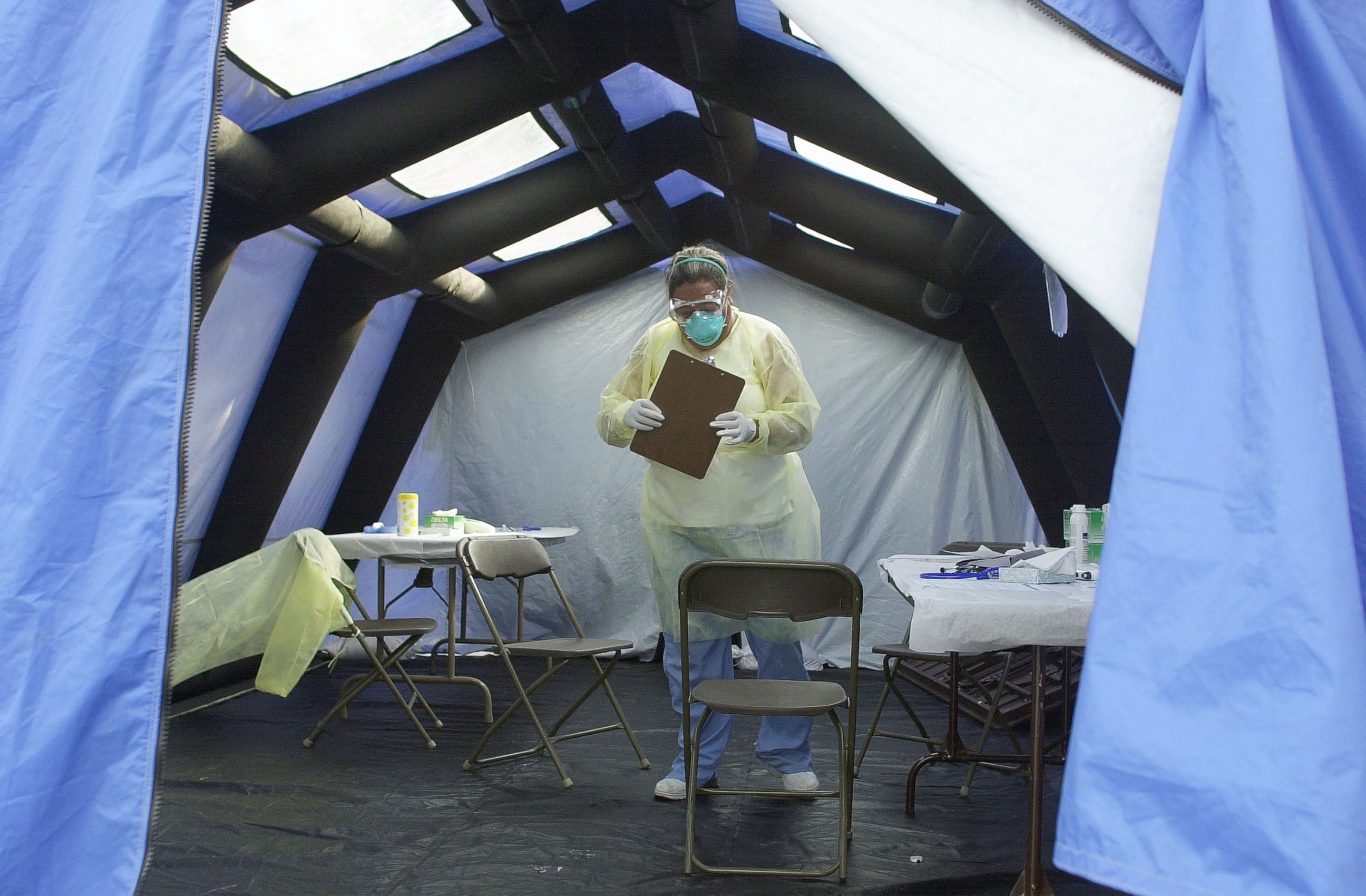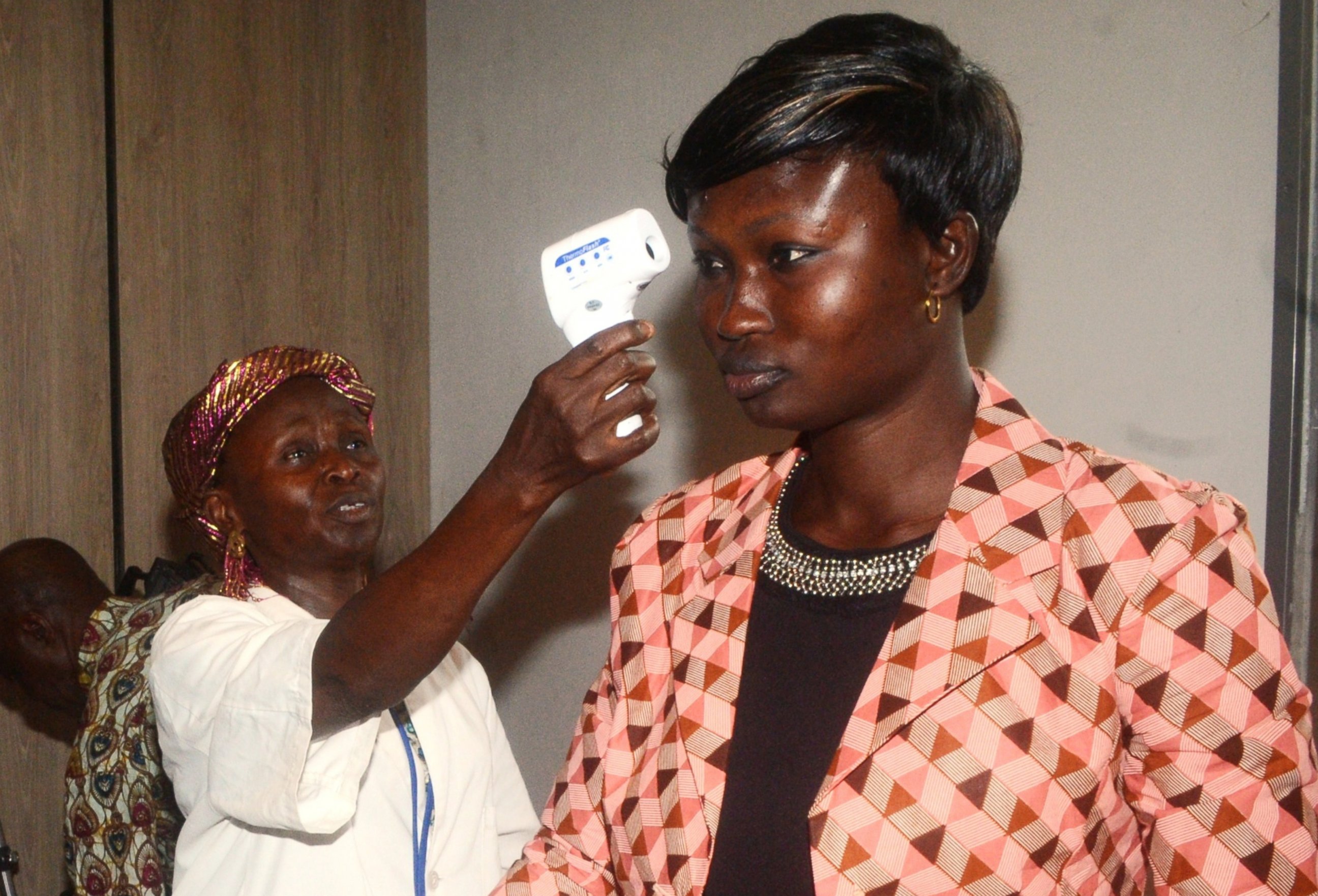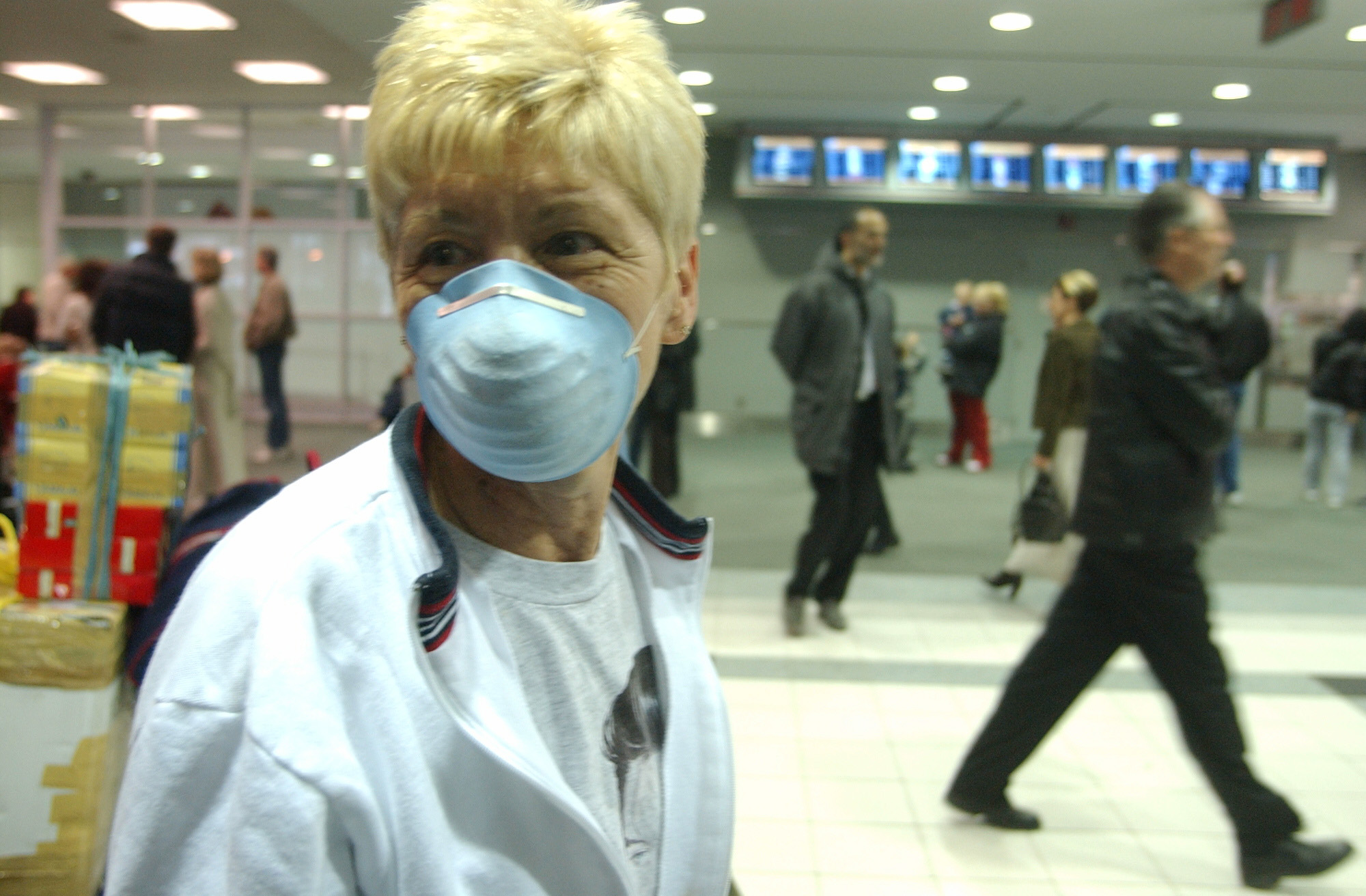What Would Happen If Ebola Landed in the US
Why the CDC is confident can contain an outbreak.
— -- The current Ebola virus outbreak is already the worst on record, with 1,201 infected in three countries across West Africa. Of those infected, 672 have died, including top Ebola doctors in Liberia and Sierra Leone.
While the staggering numbers of the infected and dead are frightening, an outbreak in the U.S. is unlikely to be as devastating as the hardest hit areas in Africa, health officials said.
The U.S. Centers for Disease Control and Prevention other government agencies have multiple safeguards in place to contain the deadly virus from turning into a wider epidemic.
The safeguards have already been put into place after an American doctor in Liberia was diagnosed with Ebola. His family was visiting the U.S. before he was diagnosed and are under "fever watch" to ensure they do not develop the virus, health officials said.
Two American health care workers have been infected with the virus in Liberia and one person with a dual American-Nigerian citizenship died after flying from Liberia to Nigeria.

While none of those infected landed in the U.S., the chance of that occurring is a growing concern for health officials.
Earlier this week, the CDC issued a level 2 warning ordering Americans visiting countries affected by the Ebola outbreak to practice “enhanced precautions” by avoiding people who appear to be ill or show signs of the disease.
Despite enhanced safeguards from both local governments and the CDC, multiple experts said it’s likely that at least one person infected with Ebola will land in the U.S. at some point during the outbreak.
But once an infected passenger lands here, there are multiple ways for the disease to be contained, CDC officials said.
“It’s true that anyone with an illness is just one plane ride away from coming to the U.S.,” said John O’Connor, a spokesman for the CDC told ABC News earlier this week. “But we have protections in place.”

Throughout airports across the country, employees have been trained to spot the early signs of Ebola, including fever, sore throat and muscle weakness. At 20 U.S. airports including JFK Airport in New York City, CDC quarantine teams are ready to isolate and treat any passenger that has worrying symptoms before they enter the country, officials said.
Ebola, Spreading in Africa, Could Land in US
How Ebola Emerged Out of the Jungle
'Hero' Doctor Battling Ebola Spotlights Selflessness During Outbreak
If a crew realizes a passenger is sick while en route, the plane's captain can call ahead and have CDC officials meet the plan on the tarmac. Flight attendants can also move the passenger to a more isolated area.
If an infected passenger is identified after landing, the CDC would work to identify others who traveled with them and monitor them as well. While Ebola can be a terrifying virus, experts said it is unlikely to pass between plane passengers. The virus is not airborne, meaning a person would have to be in close personal contact with a contagious person or touch an infected surface to contract the disease.
And a person is only contagious once they have started to show symptoms. The virus is spread through bodily secretions, including blood or urine, and a person is likely to be more contagious as they become more symptomatic as the virus multiplies.
There is also the chance that an infected passenger will arrive even before they develop symptoms and know that they are sick. One particularly worrying fact is that the incubation for the virus is on average eight to 10 days but can be as long as 21 days, which means a traveler arriving in the U.S, from West Africa can appear healthy for weeks before showing symptoms.

The CDC has warned U.S. doctors to be on the lookout for signs of patients with Ebola by looking for early warning signs, including fever or muscle weakness and by taking into account their recent travel history.




